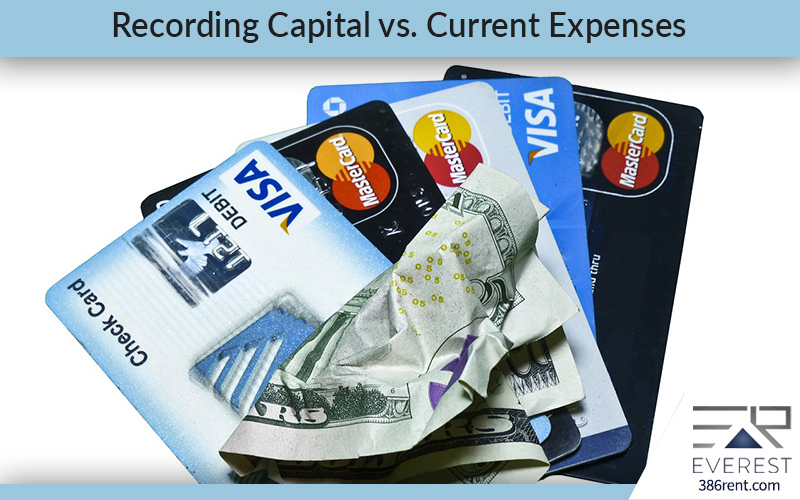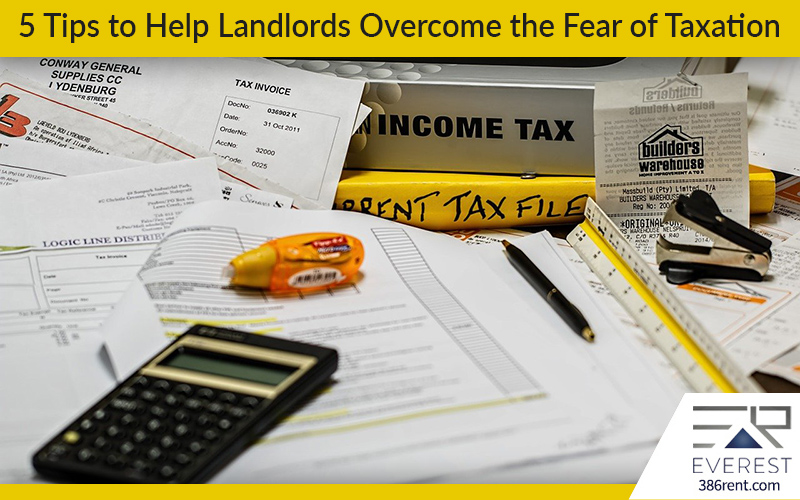In 2021, the real estate industry is laced with complexities, legalities and technological advancements. Navigating these complexities and legalities as a landlord can prove overwhelmingly burdensome. It’s natural to feel overwhelmed and mentally burdened in your first year as a landlord.
Many decide to give up on the endeavor of building a passive income because of the struggles of managing finances and expenses to ensure profitability. Are you seizing every opportunity to boost your rental income? More importantly, are you managing your taxation matters and benefiting from exemptions where possible?
Taxation is by far the most complicated aspect of being a landlord. One needs a meticulous eye and a financially-savvy mind to stay ahead of taxes and enjoy the incentives they bring. Whether you’re based in the United States, Mexico, Paraguay or anywhere in the world, it’s crucial to do your research before becoming a landlord.
You need to understand the local taxation laws, requirements and payments, and gain insight into how these laws can benefit you as a landlord. If you’re savvy, you can quickly learn how to benefit from tax exemptions and save thousands of dollars each year. It’s all about learning how to write off certain expenses, and escaping financial hurdles with savvy planning and smart borrowing.
Let’s dive into some practical taxation tips that will help new and seasoned landlords stay on top of all tax complications and enjoy a profitable, passive rental income.
Understanding Taxation Laws & benefits
Understanding the dynamics of taxation loans and benefits is of the utmost significance. During your first year as a landlord, you must dive into the various advantages and exemptions allowed by your local and state tax laws. The regulations and laws vary for each country, and often state governments have their own laws to promote home-ownership and expand the housing market.
It’s wise to invest in a detailed guide on local tax laws, tax rebates, loans, extensions and exemptions. Many banks, payment platforms and financial institutions offer cash returns and rebates if you use their platform to pay your taxes. Research will open a world of opportunities and lucrative ways to reduce your taxation expense and enjoy your profits comfortably.
For instance, if you’re finding it difficult to manage your taxes, you can apply for a tax extension and pay the amount without the burden of additional payments and penalties. Landlords can also apply for tax loans, which typically come with nominal interest so they can grow their profits without financial burdens.
We strongly urge you to conduct research and identify the opportunities and advantages that align with your property management venture. Most landlords hesitate to apply for tax extensions and loans. Understanding your options is crucial to build your confidence and reduce your financial burdens.
Recording Capital vs. Current Expenses

Financial savviness and accounting skills are of the utmost significance to enjoy success as a landlord. Do you understand the difference between current and capital expenses? More importantly, do you understand the legal stipulations in local tax laws regarding recording expenses?
It’s crucial to understand that tax laws usually lay down specific instructions about the expenses you need to record and deduct on your tax returns. For instance, the Internal Revenue Service (IRS) has very strict rules about expense recording and deductions. Tax filers can deduct some expenses in the same year as they occurred, and others expenses are deducted several years down the lane.
To enjoy these deductions, you must understand the differences between current and capital expenses. Current expenses are smaller costs, like insurance, repairs and maintenance, and real estate photography for your listing. On the other hand, capital expenses are more significant investments, like constructing a basement or installing a state-of-the-art HVAC system.
Handling Travel Expenses
Did you know that landlords are eligible for deducting travel expenses? That’s right. However, to enjoy this advantage you must carefully and meticulously record all your travel expenses. This doesn’t necessarily apply to long vacations. It applies to your commutes from home to your rental properties for business-related purposes, such as repairs and maintenance issues.
You can deduct all these expenses from your taxation expense. If you meticulously record and track all these expenses, you can reduce your annual tax expenses by hundreds of dollars. It may not seem much when you start recording minor expenses, but when you add them over an entire year, it becomes a substantial amount.
If you have your own vehicle, you can deduct several expenses, such as fuel, repair and maintenance, roll and parking fees, and auto insurance payments.
Writing off Mortgage Interest
It’s common for new landlords to begin their journey with the financial strain of one or more mortgages. Starting a rental income makes sense when you have to pay off a hefty mortgage. If you have just started this venture, the burden of multiple mortgages and sizable interest payment can prove immensely hard.
Therefore, it’s essential to understand when and how you can write off mortgage interest to enjoy some much-needed financial relief. Once you understand the trick, it can help you save thousands of dollars a year and increase your profits dramatically.
Usually, the landlord needs to use the property for at least 14 days each year in order to write off the mortgage interest. In most cases, landlords can only deducted interest for one primary and one secondary properties. Also, it’s essential that these properties are equipped with bathrooms, kitchens and bedrooms.
Waivers for Professional & Legal Assistance
If you have any experience managing business taxes you would know that business owners enjoy deductions for the expenses they incur for financial and legal consultation. That’s right. If you engage real estate agents, lawyers, accountants, financial advisors and other professional consultants, you can deduct their charges from your taxation expense.
It’s a simple way to reduce your overall expenses and save up hundreds of dollars or more, if you are increasingly reliant on consultation and advice.
Conclusion
Dealing with taxation laws may seem overwhelming, but only as long as you don’t understand the legalities and clauses. Once you get past the fear of these complexities, you can actively start enjoying deductions and waivers to reduce the yearly burden.
If you’d like to talk more about property management, or you need help with Everest Property Management, please contact us at Everest Realty.




 As a top producing Realtor and Property Manager; Terry specializes in sales, extensive construction homes, rentals, REO’s, short sales, and all aspects of Real Estate. After graduating the University of Michigan with a master in MBA, Terry continued his endeavor and now has over 15+ years of experience in the Real Estate world. If there is anything that has to do with Real Estate and sales, you can always be sure of Terry to provide important, specialized knowledge.
As a top producing Realtor and Property Manager; Terry specializes in sales, extensive construction homes, rentals, REO’s, short sales, and all aspects of Real Estate. After graduating the University of Michigan with a master in MBA, Terry continued his endeavor and now has over 15+ years of experience in the Real Estate world. If there is anything that has to do with Real Estate and sales, you can always be sure of Terry to provide important, specialized knowledge.




